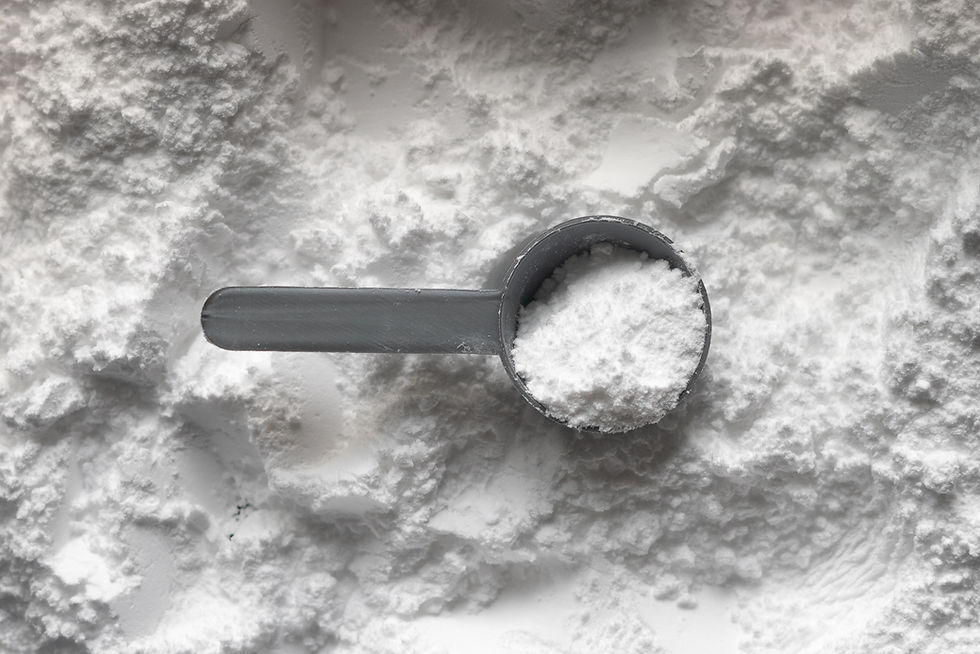Unleashing the Power of Creatine: A Personal Trainer's Guide
- Tom March PT
- Feb 19, 2024
- 2 min read

Embarking on the journey to better fitness involves more than just lifting weights or doing cardio. It's about understanding the tools that can optimize your efforts and propel you towards your goals. One such cost-effective tool often surrounded by misconceptions is Creatine.
What is Creatine? Creatine is a naturally occurring compound found in small amounts in certain foods and produced by the body. It's stored in muscles and used as a quick source of energy during short bursts of intense physical activity.
Debunking the Myths:
Myth 1: Creatine is only for Bodybuilders While it's true that bodybuilders often use Creatine, its benefits extend beyond bulking. It's a valuable supplement for anyone engaged in high-intensity workouts, from beginners to seasoned fitness enthusiasts.
Myth 2: Creatine Causes Dehydration On the contrary, Creatine doesn't dehydrate; it may slightly increase water content in muscles, promoting better hydration and reducing the risk of cramps.
Myth 3: Creatine is a Steroid Creatine is not a steroid. It's a natural compound found in foods like meat and fish. Unlike steroids, Creatine doesn't alter hormone levels but enhances energy production.
How Does Creatine Work? During short bursts of exercise, like weight lifting or sprinting, your body relies on ATP (adenosine triphosphate) for energy. Creatine helps regenerate ATP, allowing you to perform at peak levels for longer durations.
Benefits of Creatine:
Improved Strength: Enhances performance during resistance training.
Increased Energy: Supports high-intensity activities for a sustained period.
Quicker Recovery: Aids in muscle recovery post-exercise.
Brain Health: Emerging research suggests cognitive benefits.
Cost-Effective Fitness Fuel: Beyond its numerous benefits, one of the advantages of Creatine is its affordability. Compared to many other supplements, Creatine is a cost-effective way to enhance your fitness journey without breaking the bank.
How to Use Creatine: Creatine supplements are available in various forms, including powders and capsules. A common practice is a "loading phase" with higher doses initially, followed by a maintenance dose. However, this isn't mandatory. Consult with your healthcare provider or a fitness professional to determine the right approach for you.
Conclusion: Incorporating Creatine into your fitness journey can be a game-changer. Whether you're aiming for strength gains, improved endurance, or faster recovery, Creatine has proven benefits. As with any supplement, it's crucial to approach it with knowledge and understanding.
In summary, its cheap and it works - not something we can say about many supplements.
Remember, there's no one-size-fits-all solution in fitness. If you're considering Creatine or any other supplement, consulting with a personal trainer or healthcare professional can provide personalized guidance tailored to your unique needs.
Here's to unlocking your full fitness potential with knowledge, determination, and a budget-friendly approach!






Comments